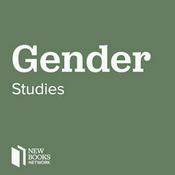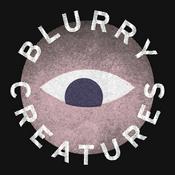1208 episodes
Feminism and Critical Hindu Studies with Shreena Gandhi, Harshita Kamath, Sailaja Krishnamurt, and Shana Sippy
2026/2/16 | 1h 1 mins.This episode features a conversation with the founding members of the Feminist Critical Hindu Studies Collective, also known as the Auntylectuals. We began with each of them reflecting on their pathway into Hindu Studies and how the questions of caste and gender shaped their approaches to this field. We then discussed their motivations for starting the collective and what interventions they hoped to make through it. This took us deeper into some thorny topics: caste as a form of embodied knowledge that is often accompanied by the denial of its continued social power; the politics of Hinduism in North America where Hindus are both predominantly upper caste and a racial minority; the relationship between Hinduism and Hindutva, or Hindu nationalism; the traffic in language and tactics between Hindutva and Zionism; and the efforts to push back against the movement to make caste a protected category in U.S. anti-discrimination law.
Guests:
Shreena Gandhi: Professor of Religious Studies, Michigan State University
Harshita Kamath: Professor of Telugu Culture, Literature, and History, Emory University
Sailaja Krishnamurti: Professor of Gender Studies, Queen’s University
Shana Sippy, Professor of Religion, Centre College
Mentioned in the episode:
Rajiv Malhotra: an ideologue of the Hindu nationalist movement in the U.S. and founder of Infinity Foundation
Harshita Kamath, Impersonations: The Artifice of Brahmin Masculinity in South Indian Dance
Amar Chitra Katha: an Indian comic book publisher whose comics are hugely popular and widely available in India and the Indian diaspora.
Sailaja Krishnamurti, “Learning about Hindu Religion through Comics and Popular Culture,” David Yoo and Khyati Y Joshi eds. Envisioning Religion, Race and Asian Americans, Honolulu: University of Hawai’i Press, 207-226, 2020.
Babri Masjid: a 16th century mosque that became the target of Hindu nationalist mobilization and was destroyed by vigilante mobs in December 1992.
Marko Geslani, “A Model Minority Religion: The Race of Hindu Studies,” American Religion, forthcoming.
Thenmozhi Soundarajan, The Trauma of Caste
Sarah Ahmed, Queer Phenomenology: Orientations, Objects, Others
Feminist Critical Hindu Studies Collective, “Feminist Critical Hindu Studies in formation”
Feminist Critical Hindu Studies Collective, “Hindu fragility and the politics of mimicry in North America”
Feminist Critical Hindu Studies Collective, “Hinduphobia is a smokescreen for Hindu nationalists”
Shana Sippy and Sailaja Krishnamurti, “Not all Hinduism is Hindutva, but Hindutva is in fact Hinduism”
Shana Sippy, “Strange and Storied Alliances: Hindus and Jews, India and Israel,” manuscript in progress
Shana Sippy, "Victimization, Supremacism, Solidarity, and the Affective and Emulative Politics of American Hindus"
Tomako Masuzawa, The Invention of World Religions, Or How European Universalism Was Preserved in the Language of Pluralism
Shreena Gandhi, “Framing Islam as American Religion Despite White Supremacy”
Equality Labs is a South Asian Dalit civil rights organization.
Learn more about your ad choices. Visit megaphone.fm/adchoices
Support our show by becoming a premium member! https://newbooksnetwork.supportingcast.fm/gender-studiesLynneth Miller Renberg, "Women, Dance and Parish Religion in England, 1300-1640: Negotiating the Steps of Faith" (Boydell & Brewer, 2022)
2026/2/14 | 43 mins.In Women, Dance and Parish Religion in England, 1300-1640: Negotiating the Steps of Faith (Boydell & Brewer, 2022) Dr. Lynneth Miller Renberg presents a lively exploration of the medieval and early modern attitudes towards dance, as the perception of dancers changed from saints dancing after Christ into cows dancing after the devil.
The devil’s cows, impudent camels, or damsels animated by the devil: late medieval and early modern authors used these descriptors and more to talk about dancers, particularly women. Yet, dance was not always considered entirely sinful or connected primarily to women: in some early medieval texts, dancers were exhorted to dance to God, arm-in-arm with their neighbors, and parishes were filled with danced expressions of faith. What led to the transformation of dancers from saints dancing after Christ into cows dancing after the devil?
Drawing on the evidence from medieval and early modern sermons, and in particular the narratives of the cursed carolers and the dance of Salome, this book explores these changing understandings of dance as they relate to religion, gender, sin, and community within the English parish. In parishes both before and during the English Reformations, dance played an integral role in creating, maintaining, uniting, or fracturing community. But as theological understandings of sacrilege, sin, and proper worship changed, the meanings of dance and gender shifted as well. Redefining dance had tangible ramifications for the men and women of the parish, as new definitions of what it meant to perform one’s gender collided with discourses about holiness and transgression, leading to closer scrutiny and monitoring of the bodies of the faithful.
This interview was conducted by Dr. Miranda Melcher whose book focuses on post-conflict military integration, understanding treaty negotiation and implementation in civil war contexts, with qualitative analysis of the Angolan and Mozambican civil wars. You can find Miranda’s interviews on New Books with Miranda Melcher, wherever you get your podcasts.
Learn more about your ad choices. Visit megaphone.fm/adchoices
Support our show by becoming a premium member! https://newbooksnetwork.supportingcast.fm/gender-studies- When young people began disappearing in Argentina, their mothers searched for answers. Despite laws prohibiting protests and political gatherings, the women still met to walk the Plaza de Mayo, a central square in Buenos Aires near the president’s residence. The government worked to deny their reports of the missing, to discredit the women, and to erode their standing among their peers. But the Madres de la Plaza de Mayo persisted.
Dr. Laura Tedesco joins us to share about her own childhood in Argentina during the military junta of the 1970s, her expertise on the Madres de la Plaza de Mayo, and what authoritarianism then and now looks like, as we take a deep dive into her article “How Government Killings and Kidnappings in Argentina drove mothers to resist and revolt – and eventually win,” published in The Conversation on January 27, 2026.
This episode explores: features of authoritarianism, liberation theology, the death flights, Nunca Mas, human rights, fear, mothers’ activism, and how a society can react to state terrorism.
Our guest is: Dr. Laura Tedesco, who is an Associate Professor of Political Science and International Relations. She specializes in Latin American Politics, Political Leadership, Political Corruption, and the dynamics of Authoritarianism and Democracy. From 2016 to 2024, she led a research grant funded by the National Endowment for Democracy (NED), focusing on the political role of the Fuerzas Armadas Revolucionarias (FAR) in Cuba. Additionally, from 2009 to 2021, she directed a research project sponsored by the Open Society Institute, examining political leadership in Latin America. Since 2024, Dr. Tedesco has served as the Associate Dean for Humanities and Social Sciences at Saint Louis University's Madrid campus.
Our host is: Dr. Christina Gessler, who is a writing coach and developmental editor for academics. She is the creator and producer of the Academic Life podcast. She holds a PhD in history, which she uses to explore what stories we tell and what happens to those we never tell.
Playlist for listeners:
The First and Last King of Haiti
A Brief History of the World in 47 Borders
Thanks To Life
Dear Miss Perkins: A Story of Frances Perkins Efforts to Aid Refugees From Nazi Germany
Secret Harvests
Preparing for War
Living Right
The Library of Lost Maps
Welcome to Academic Life, the podcast for your academic journey—and beyond! Join us again to learn from more experts inside and outside the academy, and around the world. Missed any of the 300+ Academic Life episodes? Find them here. And thank you for listening!
Learn more about your ad choices. Visit megaphone.fm/adchoices
Support our show by becoming a premium member! https://newbooksnetwork.supportingcast.fm/gender-studies Kristin Roebuck, "Japan Reborn: Race and Eugenics from Empire to Cold War" (Columbia UP, 2025)
2026/2/10 | 58 mins.In her book Japan Reborn: Race and Eugenics from Empire to Cold War (Columbia UP, 2025), historian Kristin Roebuck grapples with the question: Why did Japan embrace “mixed blood” as an authoritarian empire yet turn to xenophobic racial nationalism as a Cold War democracy? Through in-depth and rigorous historical archival research, Roebuck traces the fraught history of sex, reproduction, race and empire building in Japan from the 1930s to 1950s. Through her scholarship, she crucially demonstrates how discourses on sex, mixed-race children, and adoption revolved around control of women and their bodies to strengthen nationalism and imperialism. This monograph is an important read for listeners who are interested in the topics of race, gender and empire and scholars in Asian Studies, History, and Gender Studies.
Learn more about your ad choices. Visit megaphone.fm/adchoices
Support our show by becoming a premium member! https://newbooksnetwork.supportingcast.fm/gender-studiesLinda Connolly and Tina O’Toole, "Documenting Irish Feminisms: The Second Wave" (Arlen House, 2022)
2026/2/08 | 57 mins.Linda Connolly is a professor of sociology at Maynooth University, with research focusing on gender, Irish society, family studies, migration, and Irish studies. Dr Tina O'Toole is a literary scholar with research expertise in Irish and diasporic writing, gender studies, and the history of sexualities; she is a senior lecturer at the University of Limerick.
In this interview, they discuss their well-known text Documenting Irish Feminisms, first published in 2005 and now re-released.
Documenting Irish Feminisms: The Second Wave (Arlen House, 2022) is a wide-ranging volume that traces the development of second-wave feminism in Ireland. The work draws upon a diversity of rare primary sources, including documents, photos, and publications. Connolly and O’Toole explore several themes in Irish feminist politics from the 1970s to the 1990s, including the emergence of pioneering feminist groups and organizations; reproductive rights and activism; the legal system and the state; the development of cultural projects; feminism and Northern Ireland; lesbian activism; and class and education. This book is an invaluable resource in the fields of history, sociology, politics, Irish studies, and women’s studies.
Aidan Beatty is a historian at the Honors College of the University of Pittsburgh.
Learn more about your ad choices. Visit megaphone.fm/adchoices
Support our show by becoming a premium member! https://newbooksnetwork.supportingcast.fm/gender-studies
More Science podcasts
Trending Science podcasts
About New Books in Gender
This podcast is a channel on the New Books Network. The New Books Network is an academic audio library dedicated to public education. In each episode you will hear scholars discuss their recently published research with another expert in their field.
Discover our 150+ channels and browse our 28,000+ episodes on our website: newbooksnetwork.com
Subscribe to our free weekly Substack newsletter to get informative, engaging content straight to your inbox: https://newbooksnetwork.substack.com/
Follow us on Instagram and Bluesky to learn about more our latest interviews: @newbooksnetwork
Support our show by becoming a premium member! https://newbooksnetwork.supportingcast.fm/gender-studies
Podcast websiteListen to New Books in Gender, Radiolab and many other podcasts from around the world with the radio.net app
Get the free radio.net app
- Stations and podcasts to bookmark
- Stream via Wi-Fi or Bluetooth
- Supports Carplay & Android Auto
- Many other app features
Get the free radio.net app
- Stations and podcasts to bookmark
- Stream via Wi-Fi or Bluetooth
- Supports Carplay & Android Auto
- Many other app features

New Books in Gender
Scan code,
download the app,
start listening.
download the app,
start listening.

































